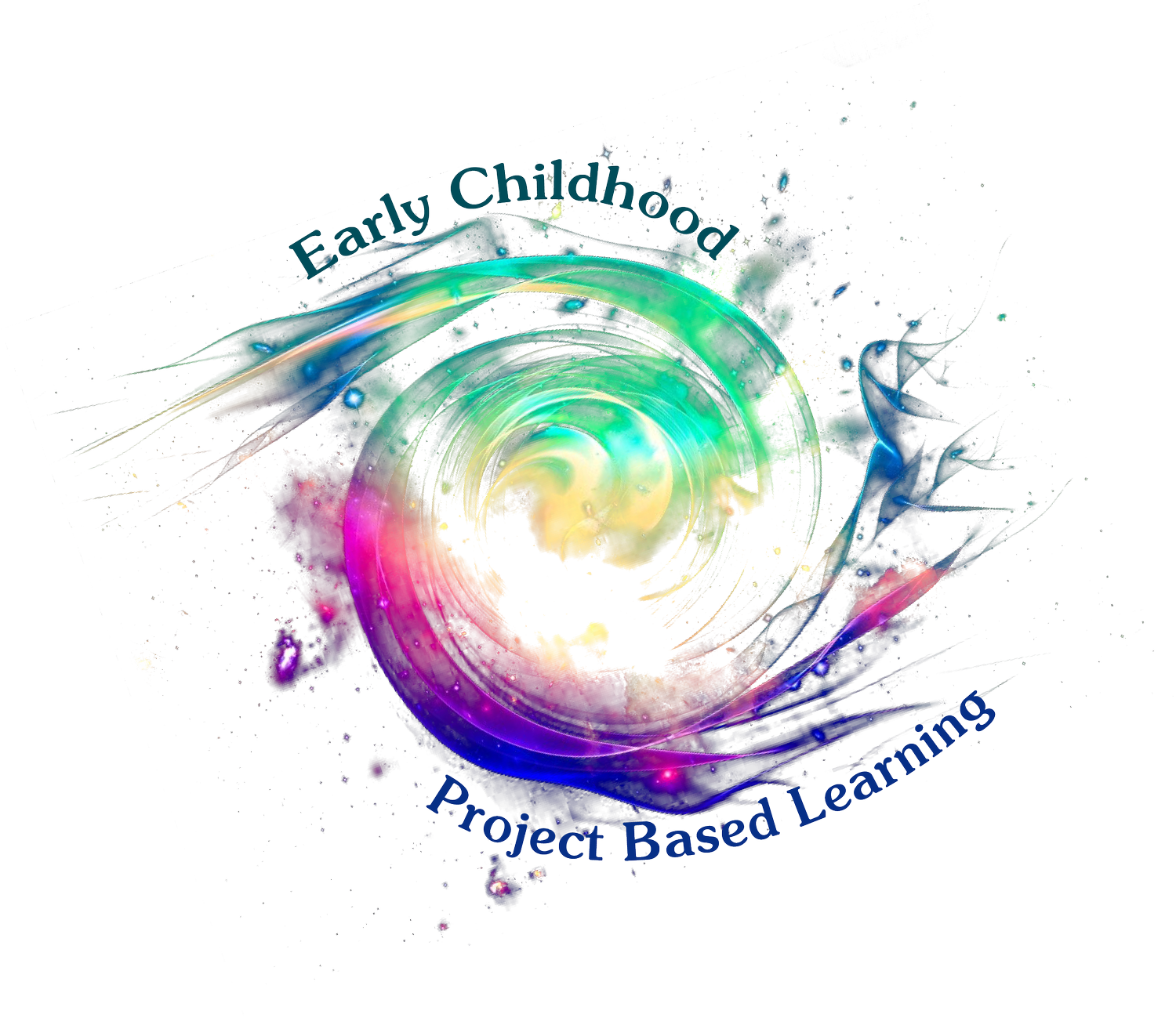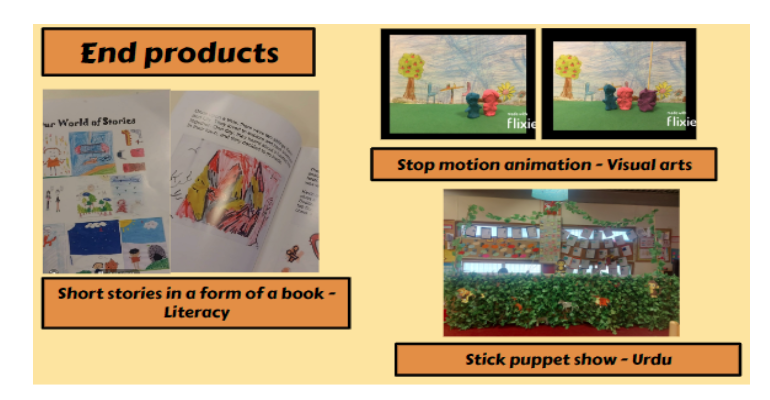Our World of Stories
We teach at a private school called TNS Beaconhouse, located in Lahore, Pakistan and we are the first school (we know of!) to follow a PBL pedagogical approach for early and primary years here in Pakistan.
Project-based learning can be a powerful tool for engaging students in meaningful, authentic learning experiences that develop critical thinking, problem-solving, collaboration, and real-world skills. We involve our students in each and every step to make them co-constructors of knowledge and only then full engagements and ownership can be ensured.
This school year came with its own challenges and opportunities. We realized that our students needed support with basic writing skills. We observed that our students needed a lot of emotional and social regulation, most of which comes from regular schooling and interaction with peers, which they have practically missed due to Covid.
We would like to walk you through the process of our students’ learning process in this project.
Project Title: Our World of Stories
Driving Question: How can we, as authors, write and create exciting stories for young children in our school community?
Age Group of Learners: 7- 8 years old
Project Length: 10 weeks
Subjects Integration: Literacy, Urdu, Information Technology and Visual Arts
Project Idea:
This project idea was initiated as a result of an interesting provocation. Our students started by creating a puppet show while playing with the puppets placed in our class and they showed interest in creating stories to present through a puppet show. We took it as an opportunity to work closely with our students to enhance their writing and critical thinking skills. This ensured interdisciplinary links by covering the content and strands in literacy, IT, Urdu language and Visual Arts, while keeping our students' interests and motivation intact.After some intriguing discussions on how important and interesting stories are, students excitedly came up with the idea of creating a puppet show. They realised that they needed a story, plot, characters and events in order to complete the story, which led to further discussions about movies as one way to tell stories. Children came up with different movie suggestions. On the basis of the suggested list of movies, we decided to watch Jack and the Beanstalk as our Entry Event so that the learners would be able to identify the essential elements of the story. After watching the movie, children realised that there are different ways to engage listeners and present stories. Following this Entry Event, our students wanted to learn how to actually write stories for our Early Years students. They decided that they needed to know a lot regarding how to write stories and what it took to take on the role of an author.
Skills and Content:
Our students are involved in co-constructing the targets they had to achieve with us at the beginning of the project, and this Voice and Choice lends to much more authentic ownership. Here is what we came up with:
Literacy
Story Elements (setting, characters, events, problems and solutions)
Grammar (adjectives to describe characters; synonyms and adverbs for using robust vocabulary and adding details)
Success Skills
Collaboration
Communication
Creativity
Critical Thinking
Sustaining the Inquiry:
Expert Visitor
We invited Ms. Mehreen, a drama expert from the Dramatics Society at the National College of the Arts, to teach us about the story writing process. She showed the students how to overcome writer’s block by “rolling a story” and to consider their story’s sequence by “walking a story” (students will explain their beginning, middle and end of the stories by walking on the chart paper). Identifying story elements strengthened children’s understandings and aided in clearing (any) further misconceptions they had in their minds. Our students invited her to the project presentation and were excited to present their end products to her.
Field Work:
As a part of our fieldwork we chose to take our students to the Rafi Peer Theatre’s Museum of Puppetry, where the students had an opportunity to see the different ways of storytelling i.e. puppet show, mimes, exposure to voice modulation in storytelling etc. This field trip facilitated our students' understanding of storytelling, particularly as they sat spellbound as they listened to a renowned storyteller. We also embedded a variety of assessments to support learners in achieving desired outcomes, built their self confidence and promoted meta cognitive skills in our learners. Student self-assessments, “Two Stars and a Wish” peer review, teacher observations and exit tickets were used to assess the students’ understanding of the concepts at different stages.
Time to shine and share our work:
Our students engaged in multiple discussions and activities throughout the course of the project and students finalised their end products. Keeping learners’ interest in mind they formulated their groups and decided several ways to present their stories. The beauty of interdisciplinary links in our project was that students organically learned how to make stories through subject integration including a puppet show in Urdu Literacy, stop-motion animations in Visual Arts, and an anthology of short stories in English Literacy. The students’ excitement was evident by the presentation in front of our authentic audience (younger students) and their parents as well.
From the beginning to the end, this project was a great learning experience for our students; Our students grew by leaps and bounds in reading and writing skills. They made connections throughout their learning journey. For us, the best part was that by the end of the project each child felt an author inside them and had a desire to write.
Saba Irshad has been an educator for 10 years and a PBL practitioner for the last four of those years. She is currently working at TNS Gulberg Beaconhouse, an IB School that introduced PBL for the first time in Pakistan. Saba has done her MBA at Lahore School of Economics with a distinction and a gold medal, and has recently completed her certification in Teaching with digital technology from Cambridge university. Saba is a mother of two children and loves to cook in her spare time.
Nida Muneeb currently works for TNS Beaconhouse and has been a PBL Practitioner for the past eight years as a primary school teacher, and has taught for over 11 years.
She completed her masters in Economics from Karachi University and recently did her Postgraduate in Education (PGCE) from University of London. She loves listening to music, painting, spending time with her family and meditating.



